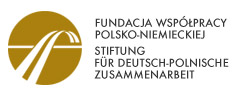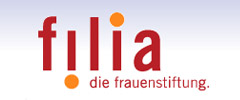Gender Training Manual developed by WECF and ALGA in both English and Russian: How to integrate gender into sustainable development?
“Gender issues are crucially important as gender is not just about the equality of sexes, it is about our life, especially in villages. It is about sanitation, it is about hygiene, it is about health, it is about livelihood, it is about development.”
21.10.2014 | WICF

PRESS RELEASE (PDF)
Discussions on gender issues in gender unequal communities can lead to positive changes within communities. WECF and partnerAlga have therefore developed a gender training manual related to sustainable development for practitioners and village leaders to start these discussions. In that way more gender-responsive activities, programmes and policies will be created.
Discussing gender in an understandable manner
The manual was developed within the EWA programme of WECF as not enough knowledge was available on gender issues and on skills to talk about gender with the target communities. The manual discusses the subject gender in a simple and understandable manner and can be used in different countries with different cultural backgrounds. “It is intended for trainers, facilitators and village leaders, all with different levels and backgrounds. It can be used by people who have experience in these issues, but also by people who just started their activities”, Bakashova says.
Positive impact
The manual (which is available in English and Russian) can be used to develop short-term training modules (up to 5 hours) or long-term training modules (up to 3 days). The main tools proposed in the manual to educate new trainers are, among others, role plays, open discussions, mini-lecturers, brainstorming and working in small groups. All tools will provide the participants with knowledge about gender issues.
“The focus on gender is important as through the gender trainings more gender-responsive activities, programmes and policies will be created. This should have a positive impact on communities where gender inequality exists”, explains Bakashova.
------
Note for the editor:
The gender manual covers four topics. These topics include understanding of gender, gender roles and gender division of labour, gender needs and control over resources. Each topic contains a theoretical introduction. The background information as well as the provision of clear definitions for each subject help the trainer to prepare the content of the training. Furthermore it should assist trainers to name and frame the issues and to be ready for possible questions from the participants. The manual divides the training material into different sessions. Each session contains information on how to prepare a session, what materials are needed, what time schedule should be estimated, what the participants should do and what is required of the trainer.
The manual is based on existing knowledge on gender training, but also on extensive and long-term experiences of its authors. It has been developed in the framework of the “Empower Women – Benefit for All” (EWA) programme funded by the Dutch Ministry of Foreign Affairs. The selected exercises have been tested by the respective organisations and found useful for the preparation of new trainers. The manual can be applied in various settings worldwide.
The manual (in English and Russian) can be downloaded for free.
Contact:
Chantal Van den Bossche, WECF Press,
Chantal.vandenbossche@wecf.eu
Mobile: 00316.28129992
Women in Europe for a Common Future (WECF) is an international network of over 150 women’s, environmental and health organisations implementing projects in 50 countries and advocating globally for a healthy environment for all.
Related News
Meet the Winners of the Gender Just Climate Solutions Award at COP24
On the 70th anniversary of the Universal Declaration of Human Rights, we awarded Gender Just Climate Solutions Winners at the climate negotiations in Katowice, Poland
11.12.2018
Invitation: Gender Just Climate Solutions Award 2018
10 December, COP24 Katowice
04.12.2018
Getting to the Future We Want
4-7 November, Brussels: European Environmental Bureau’s (EEB) Annual Conference
12.11.2018
GoodFood4All
WECF and partners all over Europe start GoodFood4All Campaign
06.11.2018
#Ruralwomen: join our Women2030 campaign!
15.10.2018






































